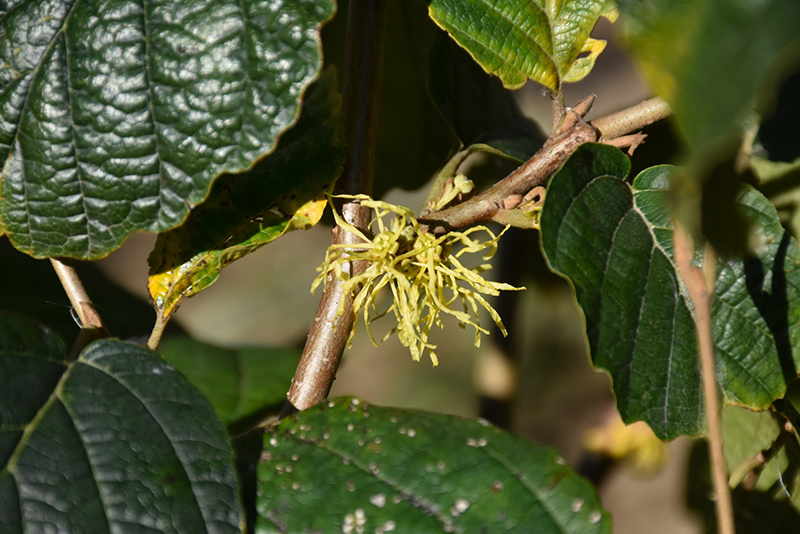Plant Finder Tool
Harvest Moon Witchhazel
Hamamelis virginiana 'Harvest Moon'
Height: 18 feet
Spread: 12 feet
Sunlight:
![]()
![]()
![]()
Hardiness Zone: 3b
Other Names: Witch Hazel
Description:
A large shrub with an upright, vase shaped habit of growth; burgundy flushed new foliage matures to deep green; clusters of lemon-yellow flowers, closely spaced on the branches in late fall, even after the leaves have fallen
Ornamental Features
Harvest Moon Witchhazel features showy fragrant lemon yellow strap-like flowers along the branches in late fall before the leaves. It has attractive dark green deciduous foliage which emerges burgundy in spring. The glossy round leaves are highly ornamental and turn outstanding shades of yellow and brown in the fall.
Landscape Attributes
Harvest Moon Witchhazel is a multi-stemmed deciduous shrub with an indistinguished habit of growth. Its average texture blends into the landscape, but can be balanced by one or two finer or coarser trees or shrubs for an effective composition.
This is a relatively low maintenance shrub, and should only be pruned after flowering to avoid removing any of the current season's flowers. Deer don't particularly care for this plant and will usually leave it alone in favor of tastier treats. It has no significant negative characteristics.
Harvest Moon Witchhazel is recommended for the following landscape applications;
- Accent
- Mass Planting
- Hedges/Screening
- Naturalizing And Woodland Gardens
Planting & Growing
Harvest Moon Witchhazel will grow to be about 18 feet tall at maturity, with a spread of 12 feet. It tends to fill out right to the ground and therefore doesn't necessarily require facer plants in front, and is suitable for planting under power lines. It grows at a medium rate, and under ideal conditions can be expected to live for 50 years or more.
This shrub performs well in both full sun and full shade. It prefers to grow in average to moist conditions, and shouldn't be allowed to dry out. It is not particular as to soil type, but has a definite preference for acidic soils, and is subject to chlorosis (yellowing) of the foliage in alkaline soils. It is somewhat tolerant of urban pollution. This is a selection of a native North American species.

